How Inbound Marketing Strategies Can Help Your Business
The two most important requirements for major success are: First, being in the right place at the right time, and second, doing something about it. –...
3 min read
Mark Parent
May 28, 2013 3:13:00 PM EDT
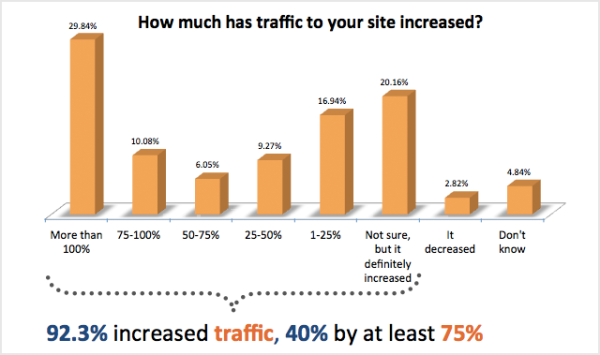
How long does it take to see results from inbound marketing? What kind of results will I see? What exactly leads to those increases? If you've been asking yourself those questions, have no fear, the latest ROI report is in, and it has answers to all those questions.
The ROI Report is an analysis created in collaboration with HubSpot and MIT. By crunching numbers from our Hubspot customers (SugarBush Marketing VAR Partner), we can not only get a perspective on the successes of our customers, but also a global view of how inbound marketing is working for businesses around the world right now.
These results come from a study based on data from 5,048 HubSpot customers and surveys from 236 knowledgeable professionals about their company's marketing strategy. Let’s jump right into the charts!
>> Learn more about how your brand can benefit from implementing an inbound marketing strategy: Click here to get your free copy of our B2B Guide to Inbound Marketing.

We aren’t just making this stuff up! Real companies are seeing real world results with inbound marketing. 29.8% of companies using Inbound Marketing have increased the traffic to their site more than 100%!

We all know that inbound marketing takes time and patience to start seeing fruits from the labor. Surprisingly, customers started seeing increases far sooner than we typically talk about.
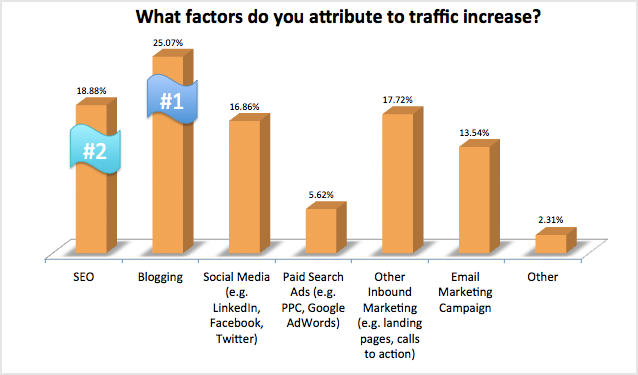
This is an interesting stat that has changed since our 2011 ROI Report. In 2011, SEO was reported as the #1 method in increasing traffic. In 2013, SEO has fallen to second place with blogging taking the first spot. This is likely due to SEO today revolving largely around blogging to create fresh, unique content due to the Google Panda/Penguin updates.
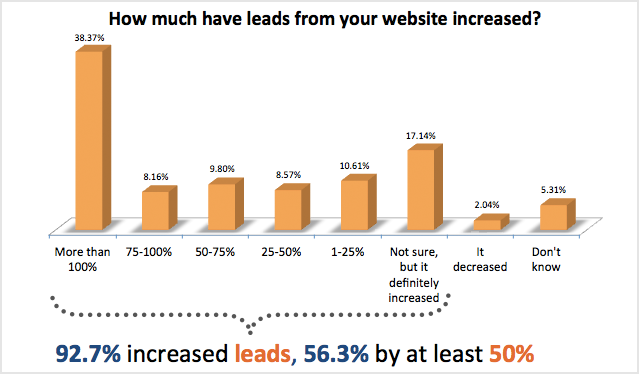
While companies have significantly increased their traffic using inbound marketing, they have seen an even greater increase in leads. 38.37% of companies using HubSpot have seen an increase in their leads of more than 100%!
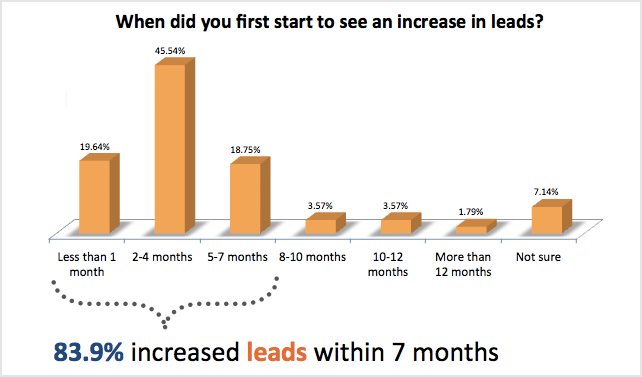
Companies today demand quick results from their investments, and here we see inbound marketing responding fast. All but only 1.79% of companies saw results within their first 12 months of utilizing inbound marketing methodologies.
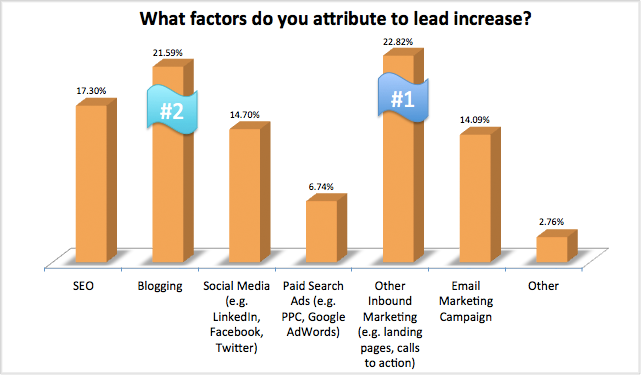
As we move from traffic to leads, we see MOFU (middle of the funnel) inbound marketing techniques like landing pages and calls-to-action reign supreme in driving leads. Blogging continues to prove itself as a powerful tool to be the second most popular method in increasing leads.
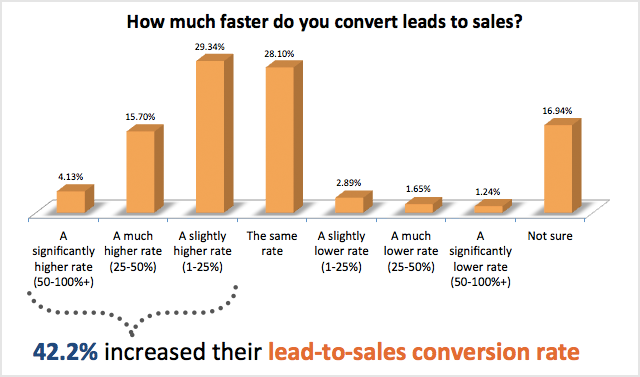
Most people will be attracted to inbound marketing to increase their traffic and leads. But who knew it could also optimize your lead-to-sale conversion? Inbound marketing makes you think through your entire sales funnel, and optimize each part effectively.
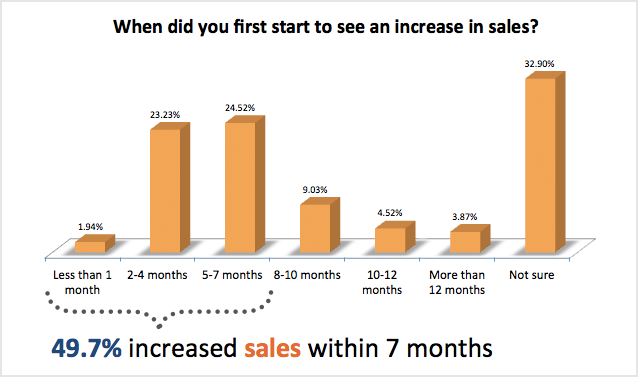
Increasing traffic and leads is an interesting statistic, but let’s get to the number we all as businesses truly care about: the bottom line. Companies using HubSpot (SugarBush Marketing VAR Partner) software started to increase their sales and put real dollars into their cash-flow quickly. 63.24% of companies started to see increased sales within the first 12 months!
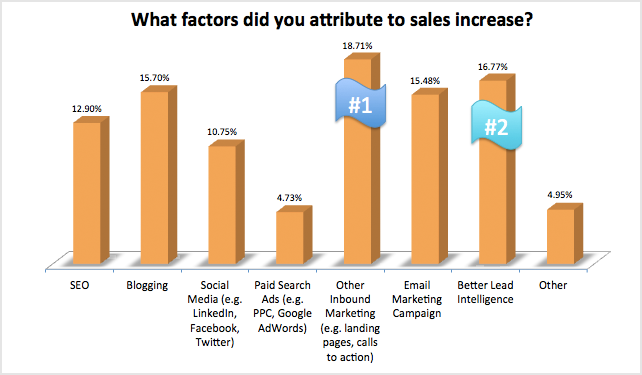
Lead management, tracking, and intelligence tools are critical when you're increasing your sales funnel and bringing in leads. A centralized marketing database allows you to capture, store, and grow information about your leads effectively.
Interested in learning more about inbound marketing? Get your free copy of our eBook, The B2B Guide to Inbound Marketing.
Make sure to connect with us on LinkedIn to get valuable insight on the latest news in marketing and website design. Follow us here:

The two most important requirements for major success are: First, being in the right place at the right time, and second, doing something about it. –...

Julia Payne is an expert in tech growth through marketing and Founding Director of Incisive Edge, one of the leading inbound agencies in the UK.
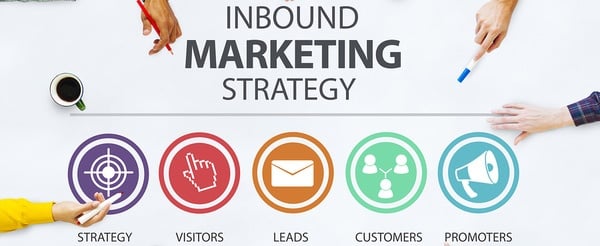
Though B2B consumers continue to indicate a preference for inbound marketing over more traditional marketing methods, some B2B companies have been...